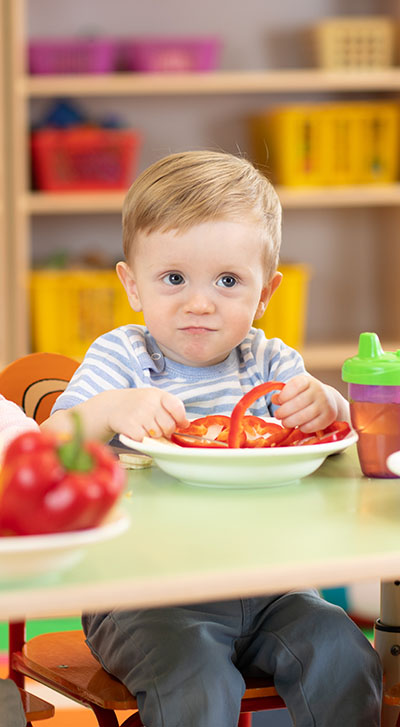Frequently Asked Questions
How are the parents involved in the nursery?
How are accidents within the setting monitored?
Where do children sleep?
What will my child eat at nursery?
Hayley’s Little Comets provides children with a healthy diet and lifestyle. Healthy meals, snacks and water is brain fuel and we believe that it is important to have a healthy balanced diet.
Breakfast consists of porridge, toast or fruit. We provide children with healthy snack snacks both morning and afternoon along with drinks throughout the day. Hot lunches are provided and we also provide guidance on healthy lunch boxes should you wish to bring your own. Our afternoon snacks are not designed to replace a child’s evening meal at home.
My child has an allergy. How can you ensure they do not become exposed?
How do I make a complaint?
It’s often best to talk to us first if you have a problem. However we do have a Complaints Policy that outlines the steps you need to take to make a formal complaint. You will also find details of Ofsted’s complaints number on display.
How do I know about my child’s daily routine?
Will my child be taken out anywhere? e.g. park, library, day trips
What is EYFS?
E.Y.F.S. stands for Early Years Foundation Stage. The EYFS is a curriculum set up by the Government that states how we as early years practitioners do things. The EYFS is split into 7 areas in total.
3 prime areas: Communication, Personal social and emotional, Physical
And 4 specific areas: Maths, Understanding the world, Literacy, Expressive art and design.
Within these areas we must ensure children are making progress in each area.


